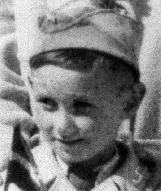You searched for: 孟加拉国youtube推广【TG飞机:@bapingseo】google霸屏seo推广专业【TG电报:@bapingseo】中國賣家如何在谷歌推廣【Telegram:@bapingseo】北京28可靠网站电竞赛事竞猜平台欢乐谷上能看到2020年美联杯何时开始吗?hV9xnK/v5SjT4.html
<< Previous | Displaying results 141-150 of 226 for "孟加拉国youtube推广【TG飞机:@bapingseo】google霸屏seo推广专业【TG电报:@bapingseo】中國賣家如何在谷歌推廣【Telegram:@bapingseo】北京28可靠网站电竞赛事竞猜平台欢乐谷上能看到2020年美联杯何时开始吗?hV9xnK/v5SjT4.html" | Next >>
-
Helen Katz
ID CardThe youngest of eight children, Helen was born and raised in a religious Jewish family living in a town in northeastern Hungary. She was the "baby" of the family and the focus of everyone's hopes and affection. Although her Hebrew name was Hannah, her family called her by her nickname, Potyo, which meant "the dear little one." 1933-39: Helen liked school, but was afraid because some of the kids and teachers hated Jews. There was talk that there might be a war. Her mother wanted them to leave Hungary…
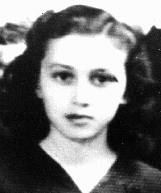
-
Wladyslaw Tadeusz Surmacki
ID CardBorn to Catholic parents, Wladyslaw attended schools in Warsaw and earned a degree in survey engineering in Moscow in 1914. After fighting in World War I, he commanded a horse artillery division in Warsaw, worked for Poland's Military Geographic Institute, and taught topography courses. He started a family in 1925, and after he retired from the army in 1929 he founded a surveying company. 1933-39: When war with Germany became imminent in the summer of 1939, Wladyslaw volunteered to fight but was rejected…
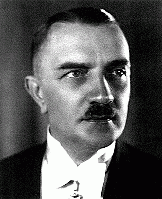
-
Itka Wlos
ID CardItka was raised in a Yiddish-speaking, religious Jewish family in Sokolow Podlaski, a manufacturing town in central Poland with a large Jewish population of about 5,000. Itka came from a poor family. After completing her public schooling in Sokolow Podlaski at the age of 14, she began to work. 1933-39: Itka was a young woman, unmarried and living with her parents when war between Germany and Poland broke out on September 1, 1939. German aircraft bombed Sokolow Podlaski's market and other civilian targets…
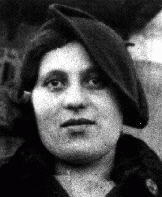
-
Fela Perznianko
ID CardFela was the older of two children born to Jewish parents living in Zakroczym, a town on the Vistula River near Warsaw. Her father was a respected attorney. As a young woman, Fela worked as a hat designer in Warsaw, until she married Moshe Galek when she was in her late 20s. She moved to the nearby town of Sochocin, where her husband owned a pearl-button factory. Fela and Moshe raised four daughters. 1933-39: In 1936 the Galeks moved to Warsaw, attracted by the city's cultural life. When Germany invaded…
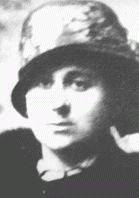
-
Chaia Gurvitz
ID CardFrom a Jewish family, Chaia lived outside Kovno, a city with a large Jewish population that was renowned for its Hebrew school system. Chaia ran a grocery store with her husband, a retired shoemaker, and their daughter Yenta. 1933-39: Chaia is expecting her daughter Feiga, Feiga's husband, Josef, and her grandson, Abraham, for dinner. Feiga works so hard all week in her beauty shop, Chaia is glad she can help out by preparing the big Sunday meal. She has baked a special cake for Abe. Chaia hopes the…
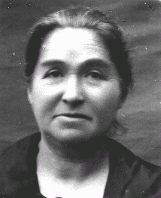
-
Feiga Malnik
ID CardRaised in a Jewish family, Feiga lived with her husband, Josef, in Kovno, a city with a large Jewish community of 38,000. Kovno was situated at the confluence of two rivers, and with its opera company, chic stores and lively nightclubs, it was often called "Little Paris." Feiga was a beautician and Josef was a barber, and together they ran a shop in downtown Kovno. 1933-39: Every day Josef and Feiga walk to their shop, which is near their house. It's hard work, being a beautician--Feiga is on her feet…
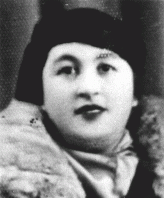
-
Hela Los
ID CardOne of nine children, Hela grew up in the Polish capital of Warsaw. Her father was an art and antique furniture dealer and had a store on Marszalkowska Street. Every year, from the beginning of the summer break until the Jewish High Holidays in the fall, the Los family vacationed in the town of Miedzeszyn, located a short train ride's distance from Warsaw. 1933-39: Hela and her family were still at their vacation home when the Germans entered Warsaw on September 28, 1939. As soon as it became possible,…
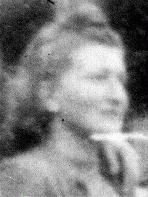
-
Frimit Bursztyn
ID CardFrimit was one of eight children born to Yiddish-speaking, religious Jewish parents. The Bursztyns lived in the heart of the same Jewish neighborhood in Warsaw where Frimit's father owned and operated a bakery located on Zamenhofa Street. In 1920 the Bursztyns moved to a comfortable, two-bedroom apartment in the same neighborhood at 47 Mila Street. Frimit attended Warsaw public schools. 1933-39: By 1939 six of Frimit's brothers and sisters had already moved out. Only Frimit and her younger brother were…
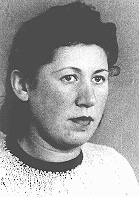
-
Franz Monjau
ID CardAfter secondary school, Franz studied painting at Duesseldorf's Academy of Fine Arts, eventually shifting to art education. He joined an avant-garde group rebelling against traditional painting. Later, he taught art to high school students. For Franz the drift towards fascism was frightening, as was the increasing antisemitism. But being only half Jewish, he did not feel worried about his personal safety. 1933-39: Hitler became chancellor of Germany on Franz's thirtieth birthday. Five months later Franz…
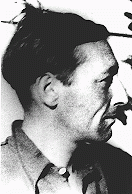
-
Leif Donde
ID CardLeif was born to a Jewish family in the Danish capital of Copenhagen. Both of his parents were active in the Jewish community there, and his father owned a small garment factory. The majority of Denmark's 6,000 Jews lived in Copenhagen before the war. Despite its size, the city's Jewish population supported many Jewish organizations, often aiding Jewish refugees from all over Europe. 1933-39: Leif went to a Jewish nursery school, which was next to a girls' school in Copenhagen. He didn't like his school…
